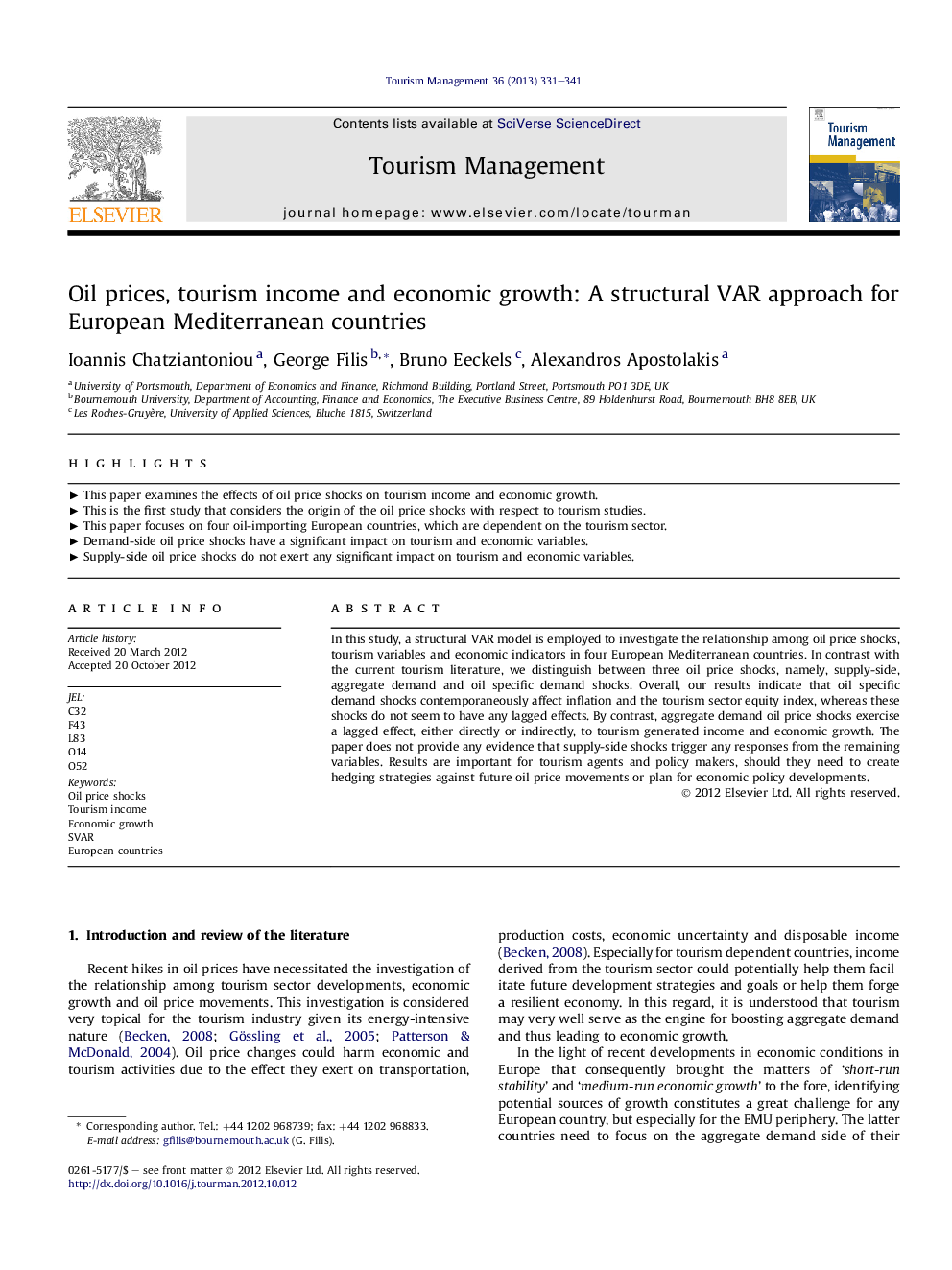| Article ID | Journal | Published Year | Pages | File Type |
|---|---|---|---|---|
| 1012293 | Tourism Management | 2013 | 11 Pages |
In this study, a structural VAR model is employed to investigate the relationship among oil price shocks, tourism variables and economic indicators in four European Mediterranean countries. In contrast with the current tourism literature, we distinguish between three oil price shocks, namely, supply-side, aggregate demand and oil specific demand shocks. Overall, our results indicate that oil specific demand shocks contemporaneously affect inflation and the tourism sector equity index, whereas these shocks do not seem to have any lagged effects. By contrast, aggregate demand oil price shocks exercise a lagged effect, either directly or indirectly, to tourism generated income and economic growth. The paper does not provide any evidence that supply-side shocks trigger any responses from the remaining variables. Results are important for tourism agents and policy makers, should they need to create hedging strategies against future oil price movements or plan for economic policy developments.
► This paper examines the effects of oil price shocks on tourism income and economic growth. ► This is the first study that considers the origin of the oil price shocks with respect to tourism studies. ► This paper focuses on four oil-importing European countries, which are dependent on the tourism sector. ► Demand-side oil price shocks have a significant impact on tourism and economic variables. ► Supply-side oil price shocks do not exert any significant impact on tourism and economic variables.
